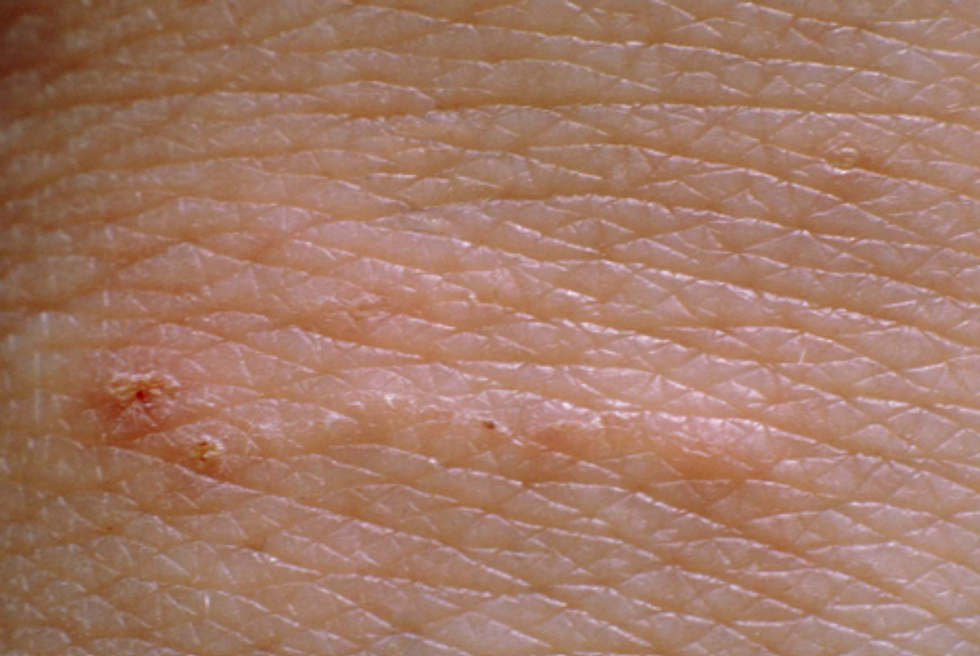Scabies is an itchy rash caused by mites, and is spread through close skin contact.
Cases of scabies are currently surging across the UK and those affected should be treated quickly to stop it from spreading.
According to a recent report by the British Association of Dermatologists, eight of the nine UK regions across the UK have seen an increase in scabies this year.
Chair at the Royal College of General Practitioners, Professor Kamila Hawthorne, commented on the surge.
One symptom of scabies is ‘intense itching’
GETTY IMAGES
She said: “Since July, GPs have seen a growing rate of scabies, at a consistently higher level than the five-year average and the seasonal norm.
“At the end of November, the rate of scabies was double the seasonal average.”
While scabies is mostly affecting the North of England, everyone should be staying vigilant.
The NHS has provided some guidance on how scabies can be spotted and treated.
The symptoms of scabies include “intense itching” especially at night, and a raised rash or spots.
The NHS explained: “The spots may look red. They are more difficult to see on brown or black skin, but you should be able to feel them.”
A scabies rash will usually spread over the whole body, aside from the head and neck, often affecting skin between the fingers, around the wrists, under the arms, and around the waist, groin and bottom.
Older people and young children may, however, develop a rash on their head, neck, palms and soles of their feet.
Those with a weakened immune system can contract a rare but highly contagious form of scabies called crusted scabies.
Watch out for a crusted, flaky rash that often affects the elbows, knees, hands and feet.

Tiny mites lay eggs in the skin
NHS
While scabies is not incredibly serious, it must be treated, so make sure you visit a pharmacist who will likely recommend a cream or lotion. Read the instructions carefully and tell the pharmacist if you are breastfeeding or pregnant. Those affected will need to repeat their treatment a week later.
Everyone in the home will need to be treated if one person presents scabies, even if others do not yet have symptoms.
If you or someone in your family has scabies, there are precautions you can take to reduce the risk of it spreading.
Wash all bedding and clothing in the house at 60 degrees Celsius or higher – or if possible in a hot dryer, on the first day of treatment.
Clothing that cannot be washed should be sealed in a bag for three days until mites die.
Avoid sex or close physical contact until treatment has been completed. Do not share bedding or clothing with someone who has scabies.
Please consult https://www.nhs.uk/conditions/scabies/ for detailed guidance on spotting and treating scabies.

Sarah Carter is a health and wellness expert residing in the UK. With a background in healthcare, she offers evidence-based advice on fitness, nutrition, and mental well-being, promoting healthier living for readers.







